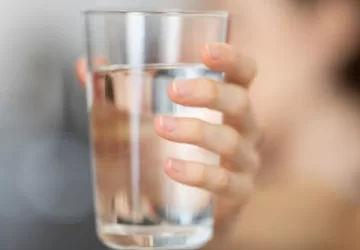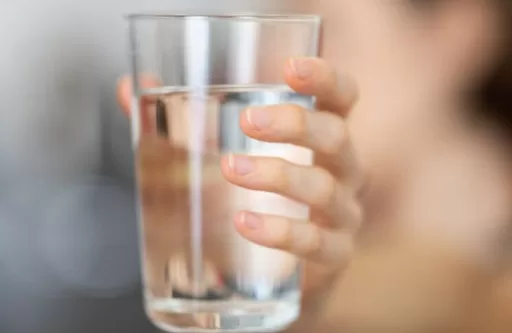Staying hydrated during the hot summer months is crucial to maintaining good health and well-being. With temperatures soaring and outdoor activities in full swing, it’s easy to become dehydrated without realizing it. Dehydration can lead to fatigue, dizziness, headaches, and even more severe health issues if not addressed. Therefore, it’s important to know how to keep yourself hydrated in the summer. In this guide, we’ll explore the best practices to stay hydrated, including essential tips for outdoor workers, hydrating foods, and practical daily habits. By incorporating these simple yet effective strategies, you can ensure that your body stays cool, refreshed, and healthy throughout the summer season.
Importance of Hydration During Summer
Staying hydrated in the summer is more than just a health recommendation; it’s essential for survival. During hot weather, your body loses water through sweat, which helps regulate temperature. However, excessive sweating can lead to dehydration if not properly managed.
Why Is Hydration Important in Summer?
- Regulates Body Temperature: Water helps cool down the body, especially during physical activity.
- Supports Digestion: Proper hydration ensures smooth digestion and prevents constipation.
- Boosts Energy Levels: Dehydration often causes fatigue and sluggishness.
- Maintains Skin Health: Adequate water intake keeps your skin hydrated, reducing dryness and sun damage.
- Supports Kidney Function: Proper hydration aids in filtering waste and toxins.
- Enhances Cognitive Function: Dehydration can impair concentration and focus.
- Prevents Heat-Related Illnesses: Staying hydrated reduces the risk of heat exhaustion and heat stroke.
By prioritizing hydration, you protect your body from the harmful effects of high temperatures and maintain overall well-being.
Hydration Tips for Outdoor Workers
If you work outdoors, staying hydrated can be a real challenge. Long hours under the sun increase the risk of dehydration, so it’s crucial to take proactive measures.
1. Drink Water Frequently
Outdoor workers should drink water regularly, even if they don’t feel thirsty. The Occupational Safety and Health Administration (OSHA) recommends drinking small amounts frequently rather than large amounts infrequently.
2. Opt for Electrolyte Drinks
Sweating leads to the loss of vital electrolytes like sodium and potassium. Incorporating drinks like sports beverages or natural coconut water can replenish these essential minerals.
3. Wear Light and Breathable Clothing
Clothing made of light, moisture-wicking fabrics helps reduce sweating and keeps the body cool. Avoid dark colors as they absorb heat.
4. Take Frequent Breaks
Schedule short breaks in shaded or cooler areas to allow your body to cool down and rehydrate.
5. Avoid Diuretics
Limit caffeine and alcohol intake, as these can increase fluid loss. Opt for plain water or naturally hydrating beverages instead.
By following these practical tips, outdoor workers can reduce the risk of dehydration and maintain productivity even in high temperatures.
The Foods That Keep You Hydrated
Eating water-rich foods can complement your hydration efforts, providing additional moisture to your body. Here are some of the best foods to keep you hydrated during summer:
1. Watermelon (92% Water)
A classic summer favorite, watermelon not only quenches thirst but also provides vitamins A and C, which support skin health.
2. Cucumber (95% Water)
Cucumbers are almost entirely water, making them a refreshing snack. Add them to salads or enjoy them with a dash of salt.
3. Strawberries (91% Water)
Packed with antioxidants, strawberries are delicious and hydrating. Use them in smoothies or salads for a nutritious boost.
4. Oranges (86% Water)
Rich in vitamin C, oranges help keep the body hydrated and support the immune system. Their natural sugars also provide quick energy.
5. Celery (95% Water)
Celery is low in calories but high in hydration. Its fiber content also aids digestion and satiety.
6. Zucchini (94% Water)
Grill it, sauté it, or eat it raw – zucchini is versatile and hydrating. It’s also rich in potassium, helping balance electrolytes.
Including these hydrating foods in your daily diet can help you meet your hydration needs without solely relying on fluids.
5 Tips to Stay Hydrated
It’s not just about drinking water; hydration involves adopting habits that help maintain optimal fluid levels. Here are five practical tips to stay hydrated during the summer:
1. Start Your Day with a Glass of Water
Kickstart your metabolism by drinking a glass of water as soon as you wake up. This habit replenishes the fluids lost overnight and prepares your body for the day.
2. Carry a Reusable Water Bottle
Having water readily available encourages you to drink more. Choose an insulated bottle to keep your drink cool throughout the day.
3. Set Hydration Reminders
Use smartphone apps or set hourly alarms to remind you to drink water. This practice ensures consistent intake, especially during busy days.
4. Infuse Your Water with Flavor
If plain water feels boring, infuse it with fresh fruit slices like lemon, mint, or berries. This not only enhances flavor but also adds vitamins.
5. Track Your Water Intake
Monitoring your hydration through apps or a simple journal can help you stay accountable. Aim for at least 8-10 cups per day, adjusting for activity levels and climate.
By making hydration a habit, you can easily meet your daily requirements without feeling overwhelmed.
Signs of Dehydration You Shouldn’t Ignore
Knowing the signs of dehydration is crucial, especially during hot weather. Here are the most common symptoms:
- Dry Mouth and Throat
- Dark Yellow Urine
- Dizziness or Lightheadedness
- Dry, Flaky Skin
- Headaches
- Muscle Cramps
- Fatigue and Weakness
If you experience any of these symptoms, increase your water intake immediately and seek shade or a cool environment. Severe dehydration may require medical attention.
Final Thoughts
Learning how to keep yourself hydrated in the summer is crucial for maintaining energy, focus, and overall well-being. Whether you are an outdoor worker, fitness enthusiast, or simply enjoying a sunny day, prioritizing hydration helps you stay healthy and active. Incorporate the tips discussed here, make use of hydrating foods, and stay mindful of your body’s needs to enjoy summer without the risk of dehydration.
Would you like to learn more about summer skincare or how to stay cool during heatwaves? Just let me know!






